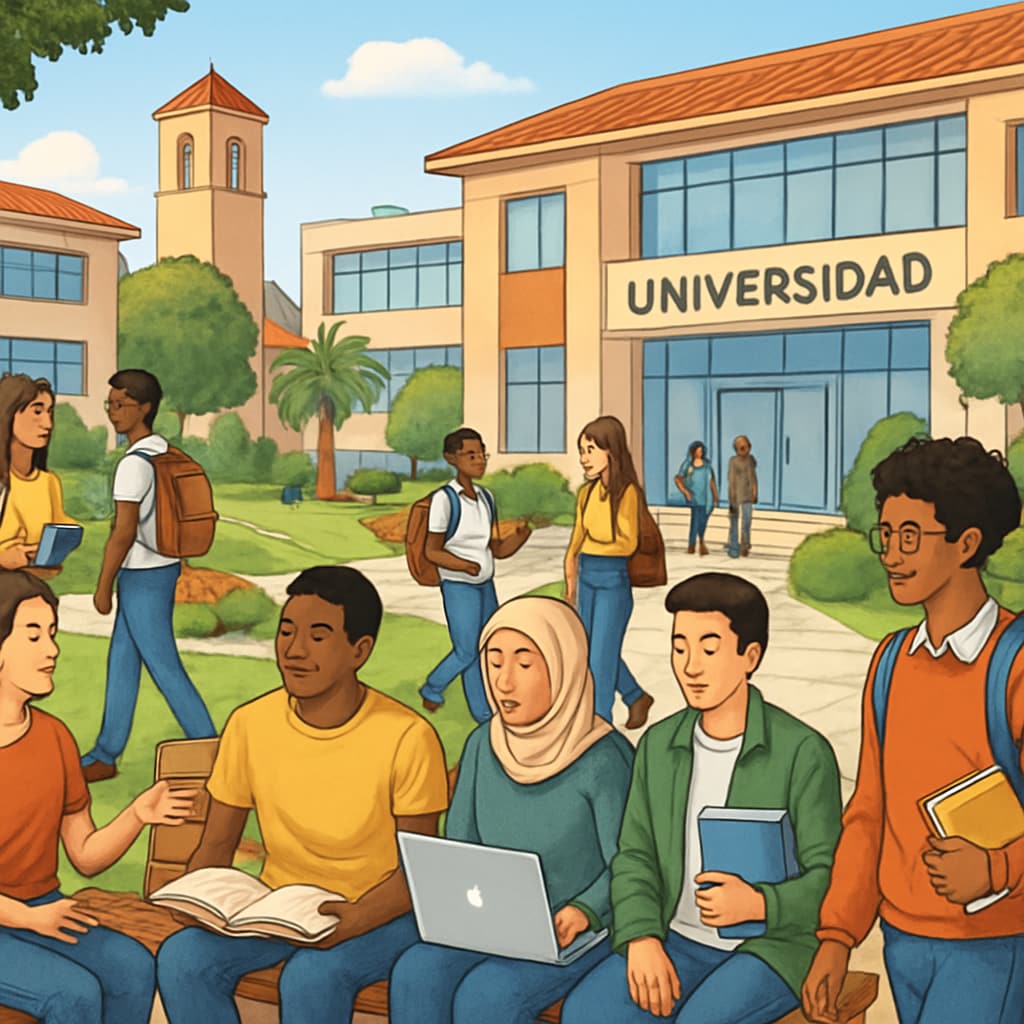Embarking on the journey of studying in Spain to earn a master’s degree is one of the most enriching experiences an international student can undertake. The combination of world-class education, diverse cultural exposure, and the chance to integrate into Spanish society creates an environment where both personal and academic growth thrive. However, cultural adaptation is a key aspect that requires careful planning and effort. This article will guide you through the opportunities and challenges of studying in Spain, focusing on how to achieve a rewarding educational and social experience.
Why Study in Spain? Academic Excellence and Cultural Diversity
Spain is renowned for its high-ranking universities, offering a wide range of master’s degree programs across various disciplines. Whether you’re pursuing a degree in business, arts, technology, or science, Spain provides robust academic frameworks and cutting-edge research opportunities. Moreover, the country is a melting pot of cultures, blending historical richness with modern dynamism. This unique mix fosters global perspectives that can be instrumental in enhancing your career prospects.
Beyond academics, Spain’s lifestyle is captivating. From the vibrant streets of Madrid to the coastal charm of Valencia, students have the opportunity to immerse themselves in a culture that values community, tradition, and innovation. This holistic exposure is particularly valuable for developing global competencies.

Preparing for Cultural Adaptation in Spain
Adapting to a new culture is an integral part of studying abroad. Spain’s cultural norms, language, and social practices might differ significantly from what you’re accustomed to, but embracing these differences can be a transformative experience. Here are some steps to ease the cultural adaptation process:
- Learn the Language: While many master’s degree programs in Spain are offered in English, learning basic Spanish can greatly enhance your ability to communicate and connect with locals. Free language courses or apps like Duolingo can be helpful.
- Engage with Locals: Join community events, student clubs, or volunteer programs to build meaningful relationships and understand local traditions.
- Explore the Culture: Visit museums, attend festivals, and try local cuisine to deepen your appreciation for Spanish culture.
- Stay Open-Minded: Cultural differences can sometimes lead to misunderstandings. Approach every interaction with curiosity and patience.
By making an effort to adapt, you’ll not only enhance your study experience but also develop essential cross-cultural skills valued in the global job market.

Balancing Academics and Social Integration
While earning a master’s degree is a primary goal, it’s equally important to strike a balance between academic commitments and social activities. Here’s how you can achieve this:
- Time Management: Create a structured schedule that prioritizes coursework while leaving room for leisure activities.
- Leverage University Resources: Utilize academic support services, libraries, and mentorship programs to excel in your studies.
- Participate in Extracurriculars: Engage in sports, arts, or cultural clubs to unwind and make new friends.
- Travel Responsibly: Spain’s location makes it easy to explore Europe. Plan short trips during academic breaks to enrich your experience.
Maintaining this balance ensures you make the most of your time in Spain, both academically and socially.
Post-Graduation Opportunities and Long-Term Impact
Studying in Spain not only equips you with a master’s degree but also opens doors to numerous post-graduation opportunities. The Spanish job market is increasingly welcoming international talent, particularly in fields like technology, education, and tourism. Furthermore, the experience of adapting to a new culture and building a global network will provide lifelong benefits, enhancing your personal and professional growth.
For example, many alumni of Spanish universities have gone on to build successful careers in multinational companies or start their own ventures. The skills acquired during your time in Spain, such as language proficiency, cultural intelligence, and a global mindset, are assets that will set you apart in the competitive job market.
In conclusion, studying in Spain to earn a master’s degree is not just an academic journey; it is a life-changing experience. By embracing cultural adaptation and actively engaging with the local community, you can pave the way for a rewarding and globally competitive future.
Readability guidance: Use short paragraphs and bullet points to summarize key ideas. Ensure a mix of academic and practical advice. Maintain a conversational yet professional tone to engage a diverse readership.


